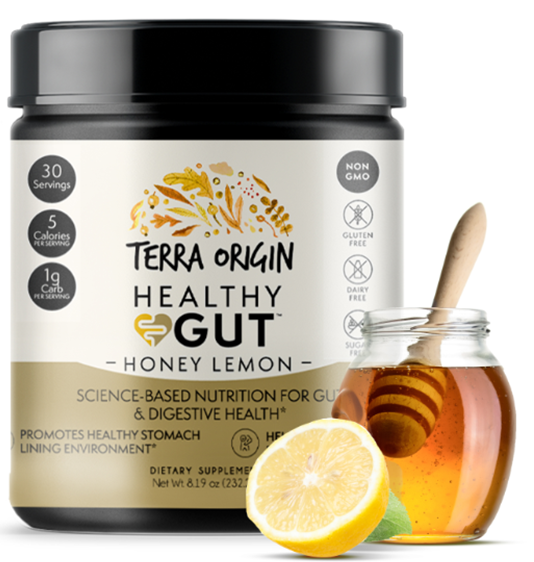Discover the Secret to Digestion and Resistance With Digestive Tract Health And Wellness Assistance

Comprehending Intestine Health And Wellness
Recognizing digestive tract health is critical for overall well-being, as it plays a significant duty in food digestion, resistance, and also mental wellness. The intestine, making up the gastrointestinal tract, is in charge of damaging down food, taking in nutrients, and removing waste. A well balanced gut atmosphere makes certain reliable digestion, permitting the body to utilize nutrients properly.
In addition, intestine health and wellness substantially influences the body immune system. The digestive tract houses a considerable section of the body's immune cells, and a healthy digestive tract can assist ward off virus and lower swelling. Disturbances in gut health and wellness can result in an over active immune response, potentially adding to autoimmune conditions and allergies.
Furthermore, the gut is typically referred to as the "second brain" due to the gut-brain axis, a complex communication network connecting the brain and the intestine. This link affects state of mind, cognition, and emotional wellness. Concerns such as dysbiosis, characterized by an inequality in digestive tract bacteria, have been related to mental health conditions, consisting of stress and anxiety and depression.
The Gut Microbiome Explained

The digestive tract microbiome, a diverse community of bacteria staying in the stomach tract, plays a pivotal role in maintaining digestion wellness and total well-being. Consisting of trillions of germs, infections, fungi, and various other microorganisms, this complicated ecosystem help in the digestion of food, the synthesis of important nutrients, and the policy of metabolic processes.
Each individual's digestive tract microbiome is unique, affected by factors such as diet plan, lifestyle, genetics, and environmental exposures. A balanced microbiome sustains optimal digestion by breaking down complicated carbohydrates, creating short-chain fatty acids, and promoting the absorption of nutrients. On the other hand, an imbalance, often referred to as dysbiosis, can cause gastrointestinal disorders, consisting of short-tempered digestive tract disorder (IBS) and inflammatory bowel illness (IBD)
Research study has shown that a diverse microbiome is connected with far better health and wellness outcomes, highlighting the relevance of dietary options in supporting these bacteria. Foods rich in fiber, probiotics, and prebiotics, such as fruits, veggies, and fermented items, can advertise a healthy and balanced microbiome. Understanding the digestive tract microbiome is crucial for creating targeted treatments aimed at boosting digestive system wellness and avoiding gastrointestinal conditions.

Link In Between Food Digestion and Immunity
A durable link exists in between digestion and resistance, highlighting the critical role of the digestive tract in maintaining overall health and wellness. The gastrointestinal system is home to trillions of microbes that form the gut microbiome, which considerably influences both digestive system processes and immune feedbacks. This complicated ecosystem help in breaking down food, taking in nutrients, and providing important metabolites that sustain immune function.
When digestion is efficient, the gut barrier stays undamaged, preventing hazardous microorganisms from entering the blood stream (gut health supplement). On the other hand, bad food digestion can bring about a discrepancy in the microbiome, causing dysbiosis, which has actually been linked to various wellness problems, including inflammatory disorders and autoimmune illness. Roughly 70% of the immune system stays in the gut-associated lymphoid cells (GALT), which engages very closely from this source with the digestive tract microbiome. This interaction guarantees that the immune system can properly differentiate between helpful and hazardous materials.
Tips for Sustaining Intestine Health
Supporting intestine health and wellness is essential for keeping both digestion performance and a well-functioning immune system. To foster ideal intestine health and wellness, consider incorporating several useful approaches into your day-to-day routine.
First, focus on hydration. Drinking adequate water supports food digestion and helps keep the mucosal lining of the intestinal tracts. In addition, routine exercise can improve gut motility and advertise a varied microbiome.
Conscious eating methods are also essential. Eating food extensively and consuming gradually can assist digestion and prevent overeating, which might stress the digestive tract. Handling tension via techniques such as reflection, yoga exercise, or deep-breathing exercises can favorably influence gut health, as anxiety is recognized to interfere with gastrointestinal procedures.
Incorporating prebiotics and probiotics into your routine is one more reliable technique. While certain foods will be reviewed later on, comprehending the relevance of these elements is vital. Prebiotics serve as food for valuable intestine microorganisms, while probiotics present live helpful microorganisms.
Lastly, prevent extreme use of antibiotics, as they can interfere with the balance of digestive tract flora. By following these pointers, you can dramatically contribute to the maintenance of a healthy gut, which is essential for overall health and wellness and vitality.
Foods That Promote Digestive Tract Health

Fermented foods, such as yogurt, kefir, sauerkraut, and kimchi, are rich in probiotics, which are useful microorganisms that sustain intestine vegetations and boost food digestion. These foods can aid bring back equilibrium in the intestine, particularly after antibiotic use or gastrointestinal disturbances.
In enhancement to fermented choices, prebiotic foods, such as garlic, onions, asparagus, and bananas, act as nutrition for these probiotics, promoting their development and task. These soluble fibers sustain digestive tract motility and can relieve concerns like constipation.
Furthermore, integrating high-fiber foods, including entire grains, fruits, veggies, and legumes, is essential for keeping a healthy and balanced digestive tract. Fiber aids in routine bowel movements and helps avoid digestive system conditions.
Finally, omega-3 fats found in fatty fish, flaxseeds, and walnuts have anti-inflammatory properties that can better support gut health and wellness. Highlighting these foods in your diet plan can bring about a durable digestion system and improved immune feature.
Conclusion
In verdict, prioritizing intestine health and wellness look at here is important for enhancing digestion and boosting immunity. A balanced intestine microbiome, influenced by dietary choices and way of living elements, plays a vital function in nutrient absorption and swelling reduction.
Understanding gut health is critical for general health, as it plays a significant function in digestion, resistance, and even psychological health and wellness. The intestine houses a considerable part of the body's immune cells, and a healthy intestine can assist fend off pathogens and minimize swelling.In addition, the gut is usually referred to as the "second brain" due to the gut-brain axis, a complicated interaction network linking the mind and the gut.A robust link exists between food digestion and immunity, highlighting the important role of the intestine in maintaining total wellness.In conclusion, prioritizing gut wellness is see this site necessary for maximizing food digestion and boosting resistance.
Comments on “Boost Your Digestive Health with the Best Gut Health Supplement Available”